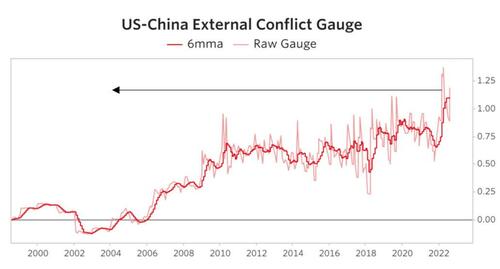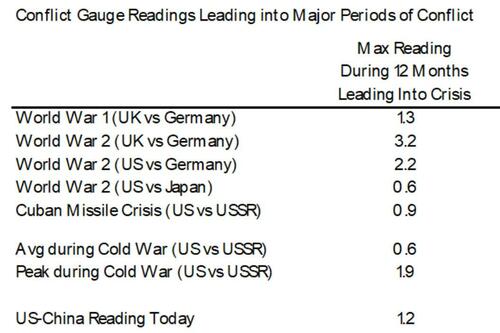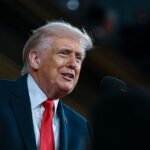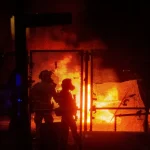
By Ye Xie Bloomberg Markets Live commentator and reporter
Ray Dalio’s take on US-China tensions over Taiwan contains some alarming warnings.
While the founder of the world’s largest hedge fund wrote that an all-out war is still considered “improbable,” a gauge he uses to track the conflict between the two countries has surged to a record and is comparable to previous major wars. He warned that the tit-for-tat escalation could easily get out of control, as has often happened in history.
As far as markets are concerned, the fallout from US House Speaker Nancy Pelosi’s visit to Taiwan appears to be more noise than signal. But for Bridgewater Associates’s Dalio, the “fourth Taiwan Straits crisis” is not something to be taken lightly, and the situation is “very similar” to the environment immediately prior to the two world wars.
That’s the message from his gauge of US-China conflict, which is composed of indicators such as changes in military spending and the views of people in each country toward the other, according to an essay published Monday. The current reading is nearly 1.2 standard deviations above average, in the high end of the range of major conflicts.

Dalio isn’t predicting that a war is inevitable. In fact, he thinks an all-out confrontation is unlikely, at least for now. Yet, the risk is an eye-for-an-eye escalation of tensions as we witnessed during the trade war in the Trump era.

From Dalio:
Pelosi’s visit was perceived by China as a move in favor of Taiwan’s independence, rather than toward one China with Taiwan part of China, and it is essentially challenging the US to stop it from doing what it is doing. The question is whether the US will respond with another escalation that will prompt another Chinese response, in the classic tit-for-tat acceleration into war, or if the sides will step back.
Even though the US fighting to defend Taiwan would seem to be illogical, not fighting a Chinese attack on Taiwan might be perceived as being a big loss of stature and power over other countries that won’t support the US, if it doesn’t fight and win for its allies. Additionally, such defeats can make leaders look weak to their own people, which can cost them the political support they need to remain in power.
An all-out confrontation between the two superpowers would have a much larger global impact than the Russia-Ukraine war. All we can do is hope it doesn’t come to that. Yet, as Dalio said, hope is not a strategy.
By Ye Xie Bloomberg Markets Live commentator and reporter
Ray Dalio’s take on US-China tensions over Taiwan contains some alarming warnings.
While the founder of the world’s largest hedge fund wrote that an all-out war is still considered “improbable,” a gauge he uses to track the conflict between the two countries has surged to a record and is comparable to previous major wars. He warned that the tit-for-tat escalation could easily get out of control, as has often happened in history.
As far as markets are concerned, the fallout from US House Speaker Nancy Pelosi’s visit to Taiwan appears to be more noise than signal. But for Bridgewater Associates’s Dalio, the “fourth Taiwan Straits crisis” is not something to be taken lightly, and the situation is “very similar” to the environment immediately prior to the two world wars.
That’s the message from his gauge of US-China conflict, which is composed of indicators such as changes in military spending and the views of people in each country toward the other, according to an essay published Monday. The current reading is nearly 1.2 standard deviations above average, in the high end of the range of major conflicts.

Dalio isn’t predicting that a war is inevitable. In fact, he thinks an all-out confrontation is unlikely, at least for now. Yet, the risk is an eye-for-an-eye escalation of tensions as we witnessed during the trade war in the Trump era.

From Dalio:
Pelosi’s visit was perceived by China as a move in favor of Taiwan’s independence, rather than toward one China with Taiwan part of China, and it is essentially challenging the US to stop it from doing what it is doing. The question is whether the US will respond with another escalation that will prompt another Chinese response, in the classic tit-for-tat acceleration into war, or if the sides will step back.
Even though the US fighting to defend Taiwan would seem to be illogical, not fighting a Chinese attack on Taiwan might be perceived as being a big loss of stature and power over other countries that won’t support the US, if it doesn’t fight and win for its allies. Additionally, such defeats can make leaders look weak to their own people, which can cost them the political support they need to remain in power.
An all-out confrontation between the two superpowers would have a much larger global impact than the Russia-Ukraine war. All we can do is hope it doesn’t come to that. Yet, as Dalio said, hope is not a strategy.







